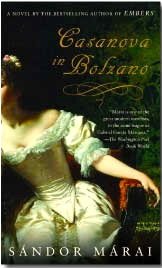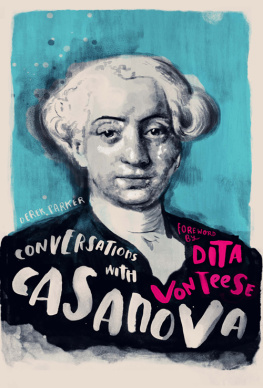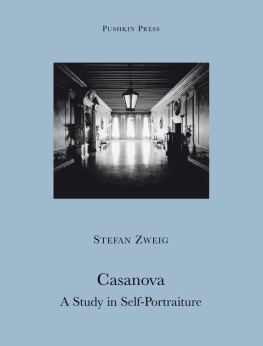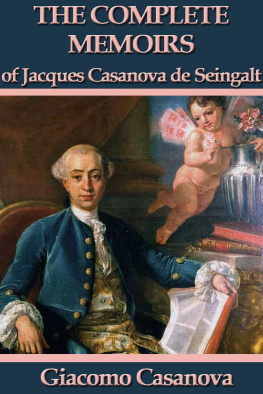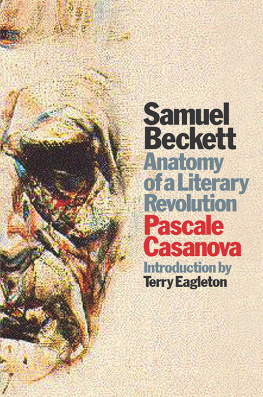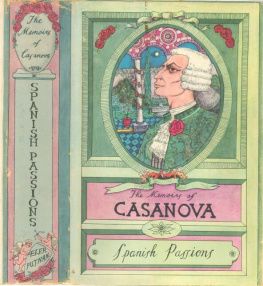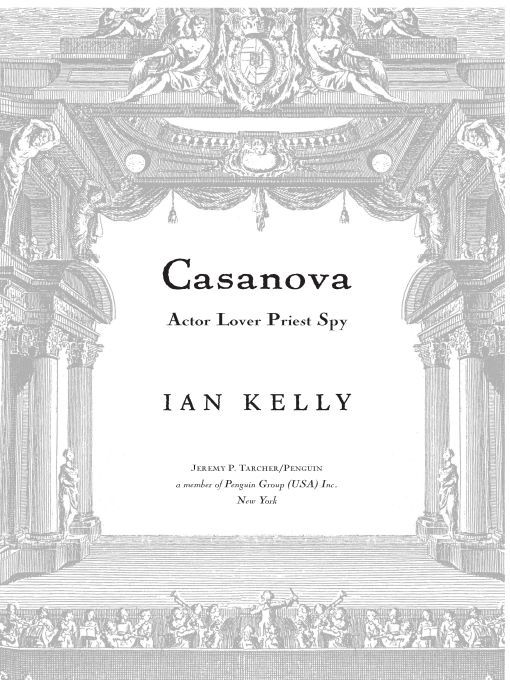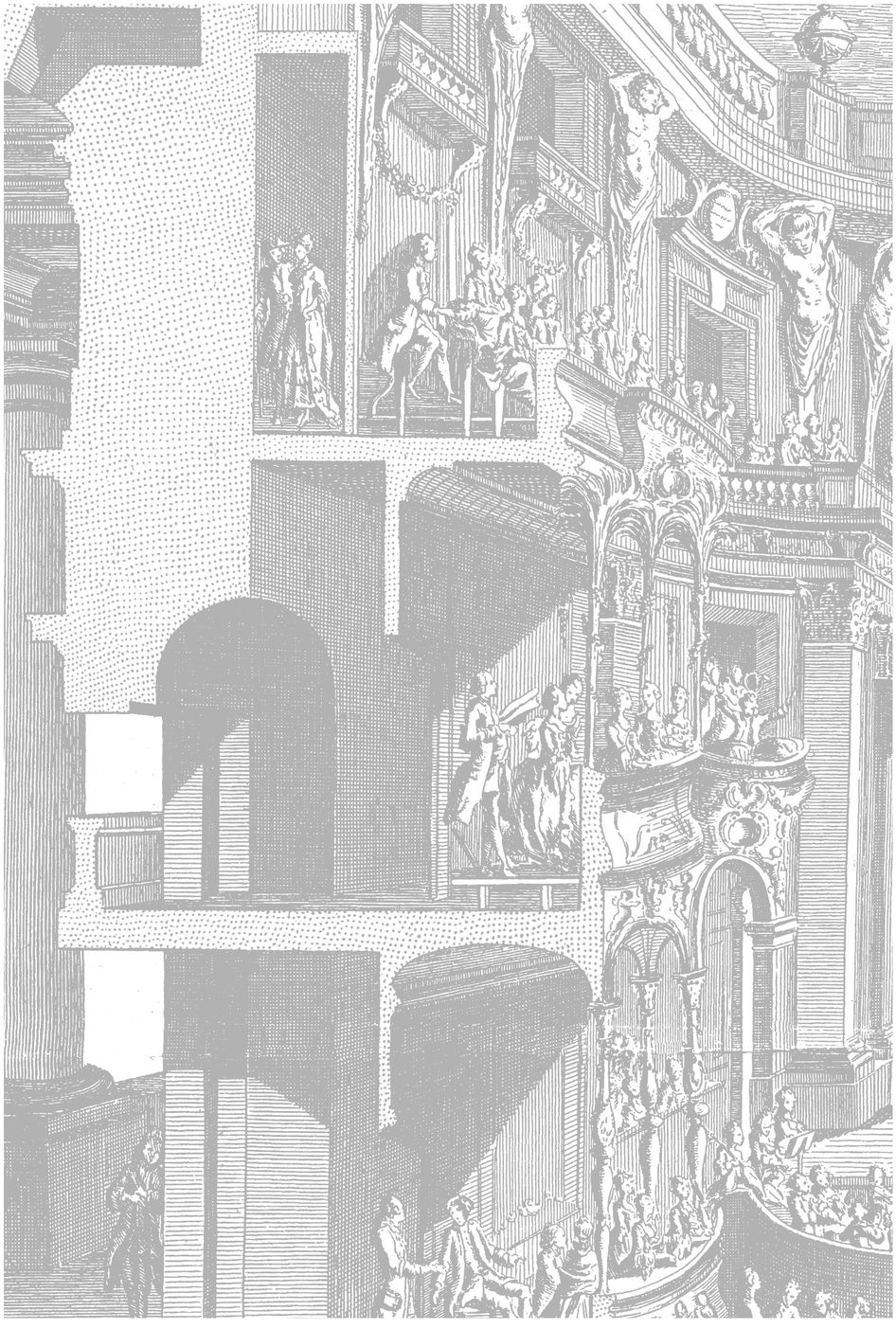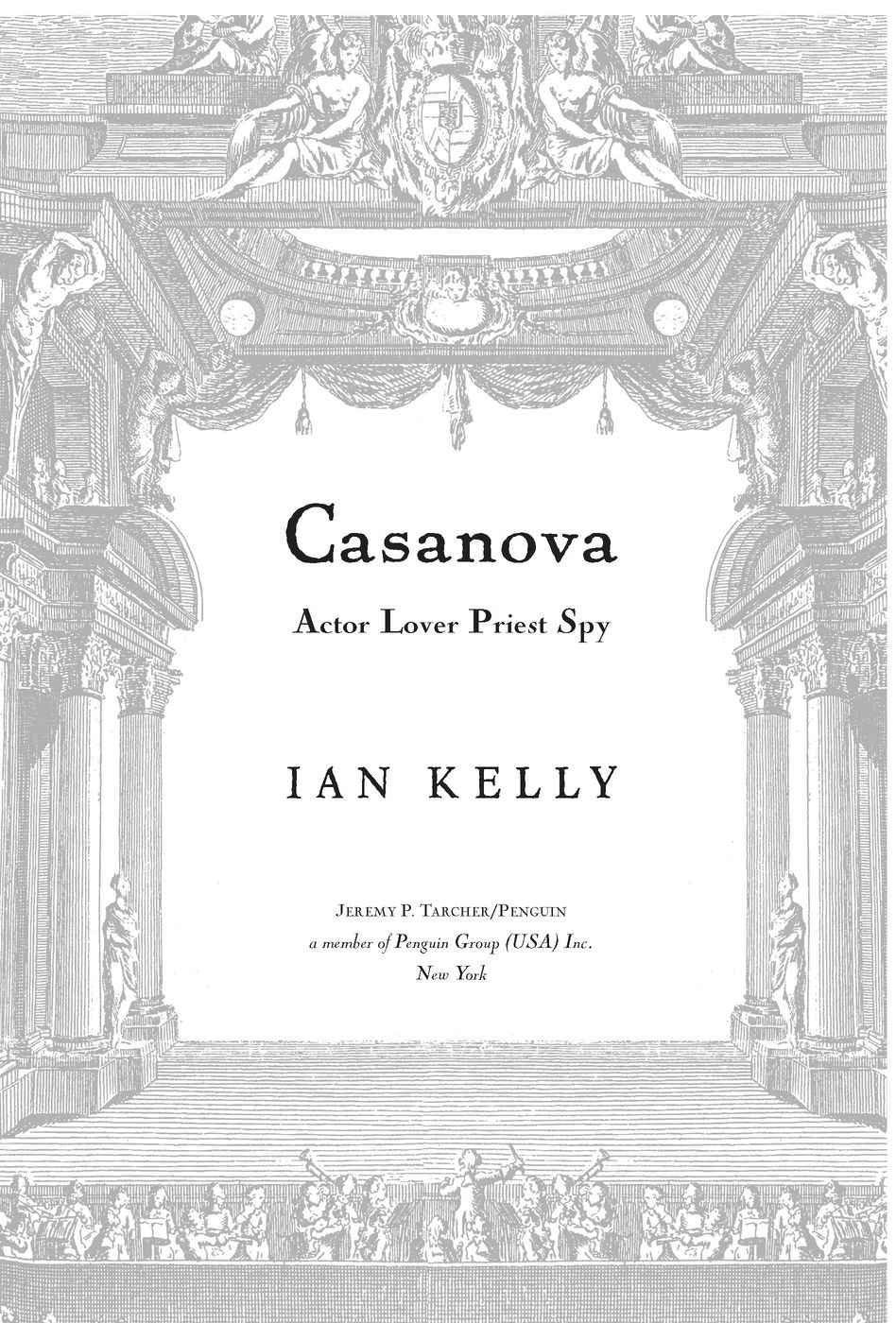Table of Contents
For C.K.
One life is a world entire in miniature.
The cabbala of Rabbi Nathan
2ND CENTURY AD
PRELUDE the TEATRO DEL MUNDO
In the first minute of my dream I see visions of dancing bodies, the form of which is all too familiar to me, illuminated in a mass of dazzling lights
Casanova, dream-notes, 1791
12 September, 1791: gridlock on Pragues Rytirsk and Harvirsk streets. Horses jitter at the flares and fireworks. Food, being ferried in tumbrels from Prikopy monastery for the coronation ball, is escorted by troops in the face of a hungry crowd. And a sixty-six-year-old Venetian steps stiffly from his employers coach into the lights of the Nostitz Theatre portico.
Only days earlier he had attended there the premiere of Mozarts new work, composed in honour of the newly crowned emperor. But La Clemenza di Tito had not pleased Giacomo Casanova any more than the royal party for whom it was written the young empress had scoffed that Herr Mozart had written a porcheria tedescha, a trashy German hotdog of an opera. Casanova had preferred Don Giovanni. He had collaborated on the libretto and attended the premiere in the same theatre. Seen it? he was said to have responded to his old friend the Venetian librettist da Ponte. Ive practically lived it.
A transformation had taken place at the theatre since the opera premiere. As Casanova passed through to the parterre at the back of the Nostitz stalls, a view opened up to him straight out of his Venetian childhood. Beyond the proscenium arch where just a week earlier there had been a stage, beyond the risen curtain, where Don Giovannis history of conquests had first been catalogued, there was a cloth-decked stage set: a two-hundred-foot-long atrium built for the coronation ball that would take place that night. It stretched back beyond the orchestra pit, beyond the theatres loading-dock and beyond even the rear wall of the stage-house, demolished by Pragues imperial professor of engineering so that the corridor ballroom might stretch beyond the disappearing-point of stage perspectives as if into infinity. Draped in eight thousand ells of Bohemian red linen, the stage-ballroom was filled with the entire Habsburg court, dancing to the music of Antonio Salieris imperial orchestra cramped into the theatre boxes. The scene was reflected in a double phalanx of Venetian mirrors, the drapery and gold threads, the chandeliers and fake marbling, the trompe lil cornices and skies: a world entire beyond art or reason - for one night only, riven in plaster and cloth, disappearing through the proscenium.
That night in 1791 at the Nostitz marked the end of an era. France was gripped by revolution and her queen, the new emperors sister, was in prison. For many of the six thousand aristocrats on stage at the Nostitz under Giovanni Tartinis painted skies it would be the last dance of the world they had known their final play-act at Venetian carnival the last of many masquerades.
As a child, Casanova had seen similar spectacles. Every year in Venice at the Feast of the Ascension when the doge ceremonially married the Venetian Republic to the sea and the whole city gave itself over to carnival Venetians expected to enjoy their teatri del mundo, theatres of the world. There were two types. One was a floating stage, owned by the Republic, that was moored off the Piazzetta San Marco and used for state-sponsored spectacles; grandiloquent enactments of mythical tales and celestial fables featuring gorgeously costumed aristocrats and fireworks. There were also, however, little street magic-lantern shows in the Piazza San Marco nearby: glimpses from the dark into a world both sublime and ridiculed, illuminations of rhinoceroses, freaks, Americans and amorous views, re-created in the light of lantern-boxes for a brave new world of voyeuristic consumers. For this reason these little teatri del mundo were also known as mondi nuovi new worlds. To judge from jottings Casanova made about his dreams, discovered in the Prague archive that now houses his unsorted notes (an inestimably exciting find for a biographer), Casanovas mind turned to these teatri after that night in 1791, and he dreamed of the Nostitz in surreal visions of naked dancing flesh; eyeballs and noses, the genitals of both sexes and other body parts the forms of which are all too familiar to me. The centurys great chronicler stood as witness finally to this last dance: the Habsburg court creating its own teatro del mundo in the form of cavorting human bodies, dazzled in theatre lights, mirrored in glass, dancing on stage sets.
From Prague Casanova returned to his desk at the library where he worked in a cold castle in Bohemia. His dreams were filled with disturbed memories, but his days were spent on a more structured narrative, one he would never see published: a record of the people and places, the smells and tastes, the sex and sensibility of the century before revolution. Casanovas eighteenth century had been in many senses a teatro del mundo itself a world in thrall to the theatre. Shaped and mirrored in its lights and literature, revelling in theatrical artifice, Casanovas life from his dream-notes and memoirs was structured by this idea of performance, schooled as he was in the shifting, reflective perspectives of Venice and its commedia del arte. Born in Venice, then a theatre capital, into a family of actors, he had travelled his whole life and all over Europe in the long tradition of Venetian masqueraders. More than that, his success in life and love, as libertine and libertarian, had been bought by his ability to reinvent himself, play every card to his advantage and live entirely for a dazzling present. The irony would not have been lost on him that night in 1791 able to feel alive only through memories and his writing that his world seemed to understand most keenly the joys of living when faced with the drama of its artificial re-creation. His masterwork, The History of My Life, brings alive the century he lived in like no other document, but the singularly actorly joy with which he wrought his life remains also a testament to a new understanding of self. As every Venetian knows, there are masks, and there is substance behind the mask, and a revolutionary new dawn looked to understand personality with reference to both.
INTRODUZIONE the OPERA BUFFA Called Venice
Casanovas memoirs form the most complete picture of ... the century preceding the French Revolution [and] a mirror of life the innermost secrets of the life of man and an era
F. W. Barthold, in 1846
Casanova would be bemused to discover that he is remembered today almost exclusively for his sex life. He was a fiercely proud intellectual and polymath, who worked at different times as a violinist, soldier, alchemist, faith-healer and even librarian, and originally trained to be a priest. Most of his life was spent far from his native Venice, engaged at multiple careers from Paris to St Petersburg, London to Prague to Dresden, Amsterdam, Vienna and even Istanbul. He made and lost a couple of fortunes, founded a state lottery, wrote forty-two books, along with plays, philosophical and mathematical treatises, opera libretti, poetry and works on calendars, canon law and cubic geometry. He translated Homers



